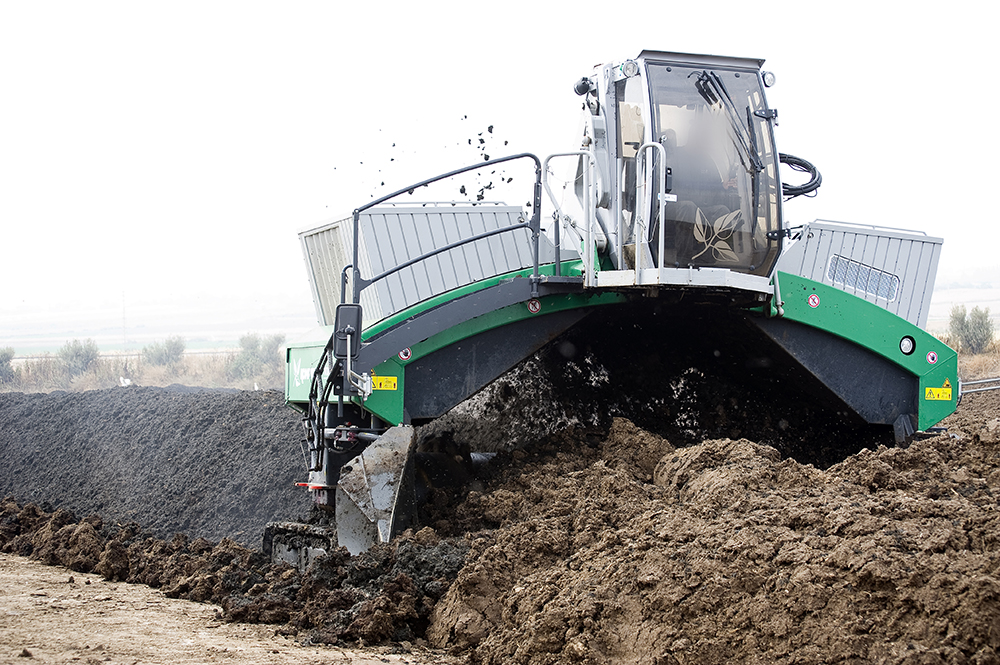Green bins and sort stations for separating organics and compostable food service packaging are becoming more common in places such as cafeterias, schools, and office buildings. But what happens after food scraps and organics are separated from recycling and landfill waste streams?
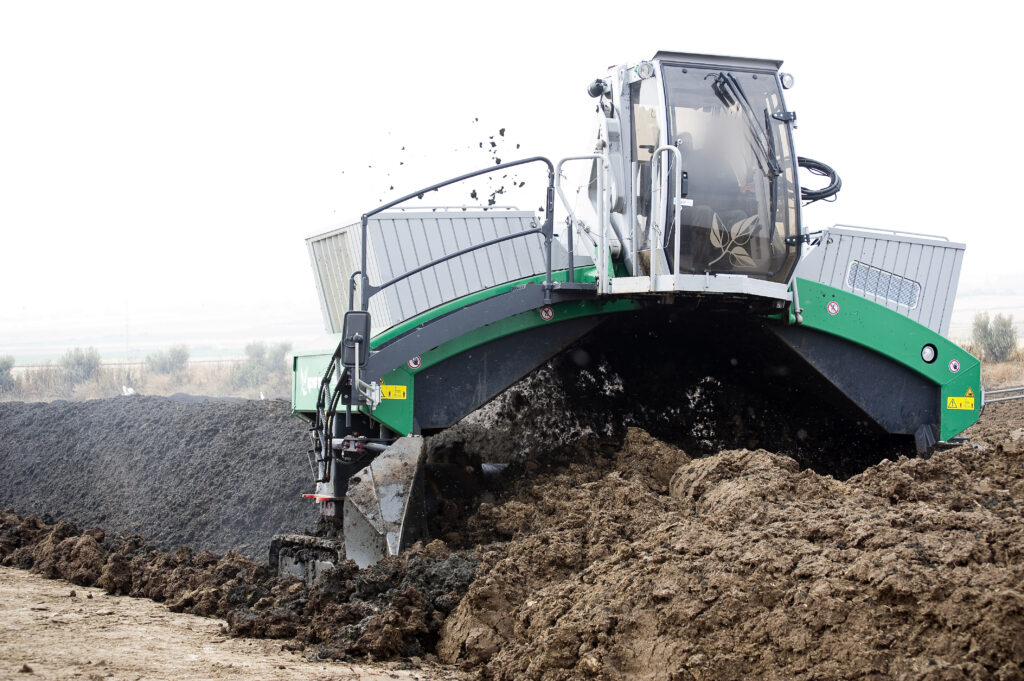
After collection, food scraps, compostable food service packaging, and other organic waste is transported to industrial composting facilities. These facilities actively manage and regulate the composting process at a large scale, ensuring complete biodegradation of all materials and producing nutrient rich compost.
State of composting in the U.S.
Unless you’re involved in zero-waste or sustainability initiatives, it’s unlikely you’ve ever seen an industrial composting facility. These places will handle food scraps alongside other compostable materials such as yard waste. Today, the reality is there are not many large-scale composting facilities in operation across the U.S. – and fewer still that accept and process food scraps and certified compostable packaging. Permitting and stringent regulations are just a few of the challenges faced by composters. For businesses and municipalities seeking to incorporate organics diversion into their waste diversion efforts the lack of facilities poses further challenges.
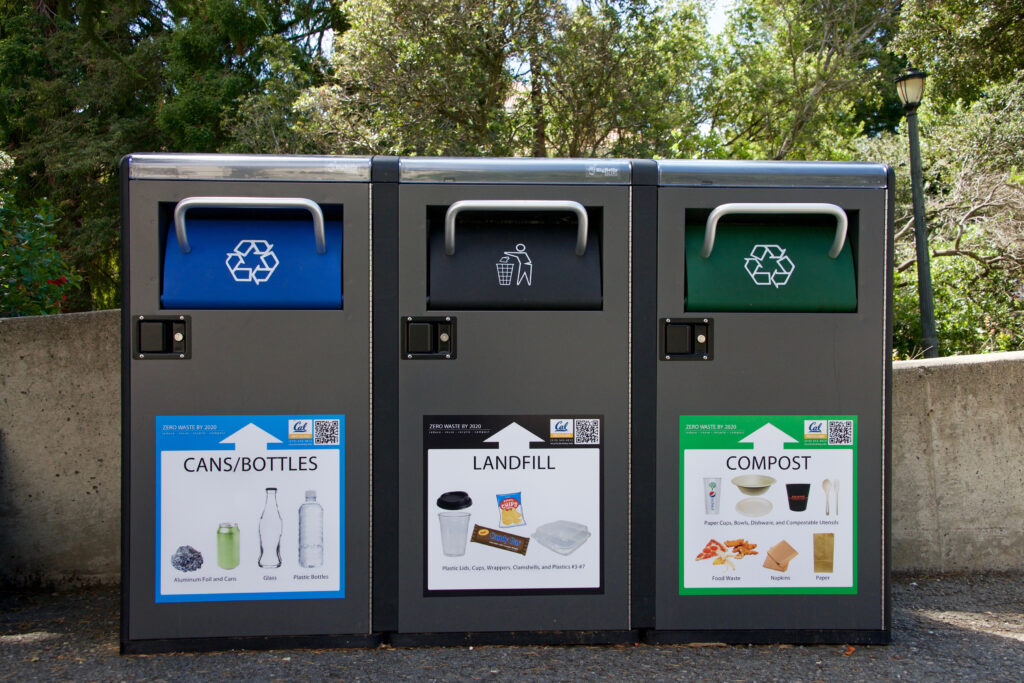
So, what does the future of composting food scraps and compostable packaging look like? That’s where the Compost Act (2021) comes into play.
What is the Compost Act?
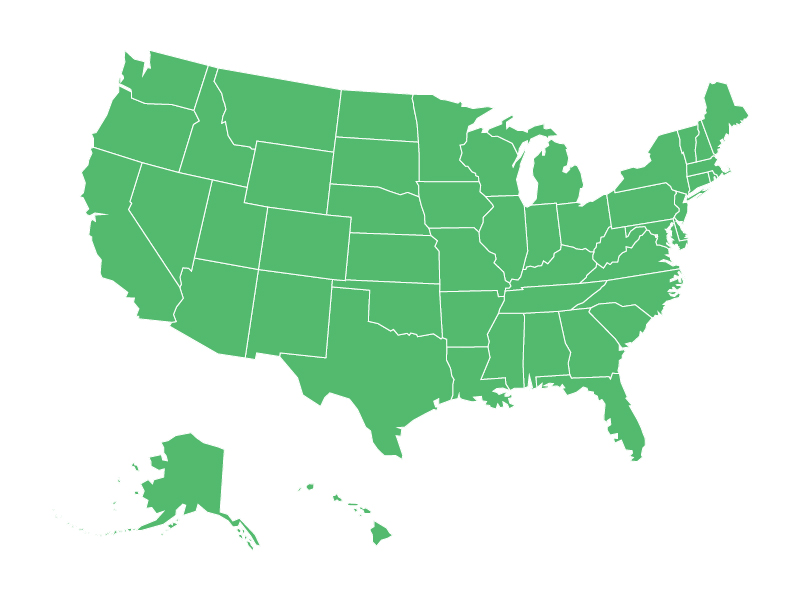
The Compost Act will support the need for more infrastructure to support composting operations across the United States. Over 10 years, $2 billion in proposed funding will be available for the development and improvement of infrastructure to support composting and supporting resources.
“On July 16, 2021, Congresswoman Julia Brownley (D-CA26) introduced the Cultivating Organic Matter through the Promotion of Sustainable Techniques (COMPOST) Act in the U.S. House of Representatives. This new federal bill aims to proactively advance composting infrastructure and support across the country.” (ISLR)
“The COMPOST Act meets the growing demand from individuals and businesses to compost food scraps and certified compostable packaging. Assisting the transition to a circular economy, the COMPOST Act would create new USDA grant and loan guarantee programs for composting infrastructure projects, including large-scale composting facilities as well as farm, home, or community-based projects. The bill would add composting as a conservation practice for USDA conservation programs. Both the act of producing compost from organic waste and using compost on a farm would qualify as conservation practices. This bill addresses a critical need for regions and communities around the country looking to expand access to food waste composting, an important step to lead the shift to net-zero.” – USCIC
Here’s an excerpt from the ISLR on the Compost Act:
The main purpose of the COMPOST Act is: [MM1]
“To require the designation of composting as a conservation practice and activity, and to provide grants and loan guarantees for composting facilities and programs, and for other purposes.”
This bill would amend section 1241(j) of the Food Security Act of 1985 to officially define and designate composting as a conservation practice and activity. It would further add specific language on composting throughout the Food Security Act’s text.
“Sec. 2. Composting as a Conservation Practice.
(2) Composting as a conservation practice and activity.-
1. In general, the Secretary shall by regulation provide that composting is a conservation practice and a conservation activity for the purposes of this title.
2. Composting defined.-
(i) In general- For the purposes of this paragraph, the term ‘composting’ means-
(I) an activity (including an activity that does not require the use of a composting facility) to produce compost from organic waste that is-
(aa) generated on a farm; or
(bb) brought to a farm by a nearby community and used to produce compost on that farm
(II) the use and active management of compost on a farm, in accordance with any applicable Federal, State, or local law, to improve water retention and soil health.”
It would also add a section (310J) to the Consolidated Farm and Rural Development Act on establishing a grants and loan guarantees program for projects that expand access to food waste composting. This section allocates $200 million per year over the course of a decade in grants and loan guarantees for composting facilities.
“Sec. 310J. Grants and Loan Guarantees for Composting Programs.
1. In general.- The Secretary, in consultation with the Administrator of the Environmental Protection Agency, shall establish and carry out a program to award grants and loan guarantees, on a competitive basis, for projects that expand access to food waste composting.”
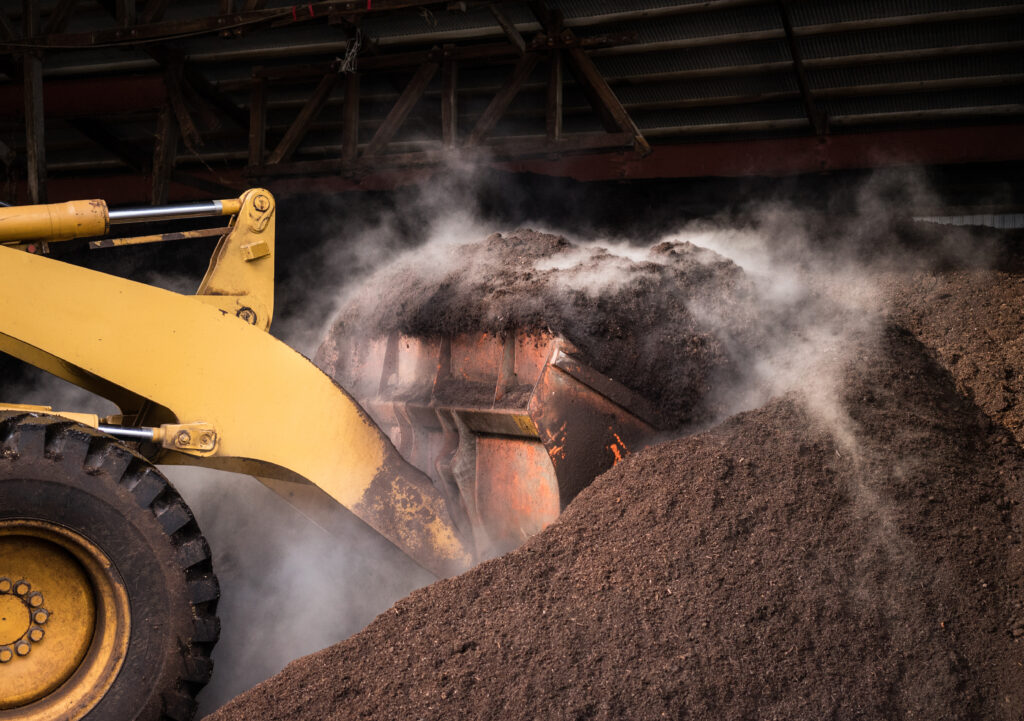
Why the Compost Act matters
The need for increased access to composting is clear. The Compost Act supports the growing need for increased infrastructure surrounding organics diversion. Driven by state and local legislation alongside corporate culture supporting sustainability, zero-waste and organics diversion are here to stay. This creates a tremendous amount of organic waste in the form of food scraps and compostable foodservice packaging that industrial composting facilities must manage. Currently, there are not enough facilities that can handle food scraps and this Compost Act will create opportunity for expansion and the creation of new facilities to compost food scraps and organics. The ability to process food scraps more broadly will increase access to composting.
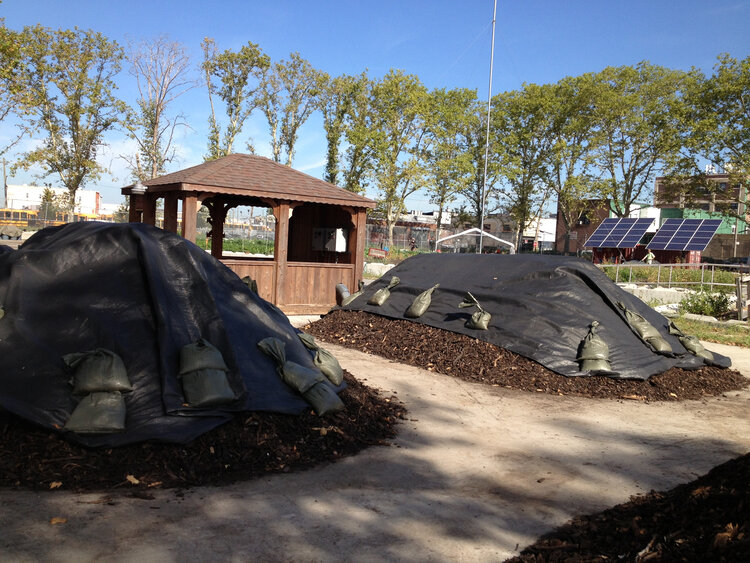
How to support
The USCIC (US Composting Infrastructure Council) has made it easy to support the Compost Act in three easy ways! https://compostinfrastructure.com/take-action
- Tell Legislators: Support the COMPOST Act!
- Post to Social Media
- Join the movement
Use this link from the USCIC to get involved and show your support for the Compost Act!
Learn more
The Compost Act, like all legislation, is complex. There are lots of great resources available for anyone looking to learn more. We’ve put together a list of helpful resources to make it easy!
- The Institute for Local Self-Reliance: https://ilsr.org/proposed-federal-compost-act/
- USCIC Press Release on the Compost Act: https://static1.squarespace.com/static/606f67a853da1e7a5d5595b6/t/60f0ac525213653423eabfe6/1626385490293/USCIC+Brownley+COMPOST+Act+Press+Release+FINAL-7.16.pdf
- USCIC – Take Action: https://compostinfrastructure.com/take-action
- https://www.compostingcouncil.org/news/573761/U.S.-Composting-Infrastructure-Coalition-Applauds-Introduction-of-Compost-ACT.htm
